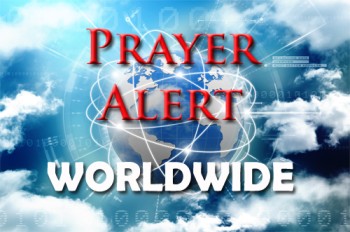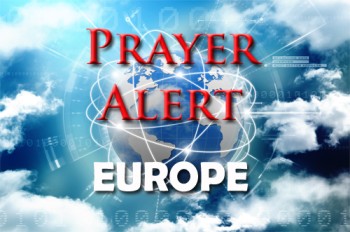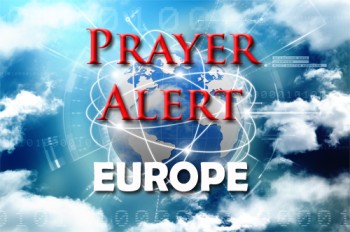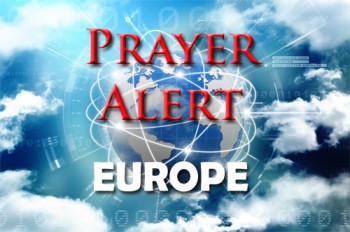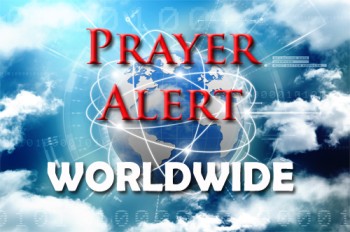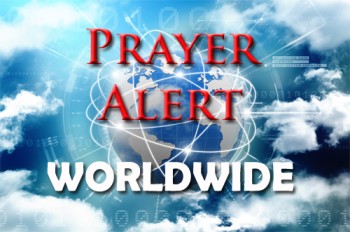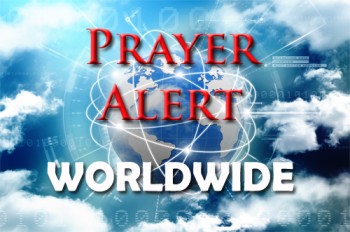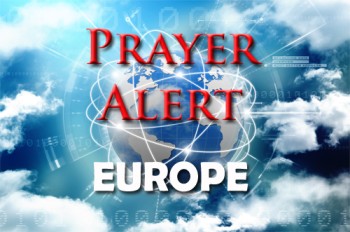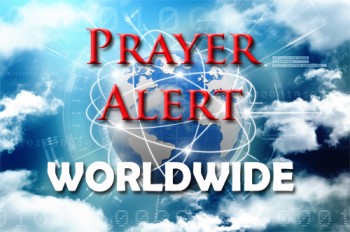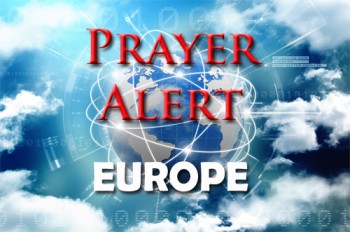Displaying items by tag: coalition government
‘Germany is back’ after Merz secures coalition agreement
Germany's conservatives, led by Friedrich Merz, have formed a coalition with the Social Democrats, ending five months of political uncertainty. Merz, 69, promised strong leadership, reforms, and renewed international confidence, declaring, ‘Germany is back on track’. The coalition plans major investments in defence and infrastructure, made possible by reforms to strict debt rules. A key focus is controlling irregular migration and restoring voter trust. Despite pressure from the far-right AfD, which recently topped opinion polls, Merz promised to balance firm border policies with democratic values. The coalition also pledges increased military spending and voluntary service, following Sweden’s model. Boris Pistorius will remain as defence minister, ensuring continuity. Support for Ukraine and fulfilling NATO commitments are central to the agenda. While critics question the coalition’s ability to end the recession, Merz remains optimistic.
Austria: coalition government talks collapse
Talks to form Austria’s first far-right-led coalition collapsed after negotiations between the Freedom Party (FPO) and the conservative People’s Party (OVP) failed. The FPO, which won the most votes in September’s election, has struggled to reach an agreement with the OVP. Disputes over key ministries, including finance and interior, along with FPO demands on EU legal rulings and Russian sanctions, proved insurmountable. FPO leader Herbet Kickl blamed the OVP for insisting on ministry allocations before resolving broader policy issues. The OVP, in turn, accused the FPO of failing to commit to fundamental democratic principles, including Austria’s role as a reliable EU partner. With coalition talks broken, the president must decide whether to restart centrist negotiations or call a snap election, where polls suggest the FPO would strengthen its lead. Political uncertainty now looms over Austria’s government formation.
Germany: coalition government on brink of collapse
Germany’s ruling coalition faces a crisis after chancellor Olaf Scholz fired finance minister Christian Lindner, citing a breakdown of trust. Scholz, leader of the Social Democrats, said that Lindner, head of the liberal Free Democrats (FDP), had prioritised his party’s interests over the country’s needs. This move has left Scholz's coalition without a parliamentary majority; this might lead to a vote of confidence in January and early elections. Tensions within the coalition had been brewing for weeks, particularly over economic policies. Scholz and the Green party had pushed for increased public spending, especially to counter rising energy costs and defence needs following Russia's invasion of Ukraine, but Lindner wants to pay for tax cuts by slashing welfare and social budgets and pushing back environmental targets. The political turmoil comes amid economic stagnation and growing uncertainties in Europe, compounded by Donald Trump’s election.
Germany: coalition finally passes 2025 budget
The German cabinet has at last approved its 2025 budget after months of wrangling, despite a €17 billion shortfall between projected spending and revenue. Finance minister Christian Lindner stated that innovative measures and stronger growth from a new economic package should generate an additional €6 billion next year. The budget includes record investments of €78 billion, net borrowing of €43.8 billion, and a total size of €481 billion. The country aims to boost its economy by over 0.5% in 2025. Lindner defended the budget's legality and fiscal prudence despite analysts’ concerns. Military aid to Ukraine will be reduced next year, as Ukraine is expected to secure $50 billion in loans from the G7. Germany was the worst performing major economy last year, with gross domestic product contracting by 0.3%. It pulled out of recession early this year, but growth has been slower than expected. Reaching agreement on the budget has been a major test for a coalition often accused of being hobbled by internal disagreements.
South Africa: Ramaphosa's second term, but with a coalition government
Cyril Ramaphosa has commenced his second full term as president, after his party formed a coalition government. In his inauguration speech, Ramaphosa highlighted the necessity for leaders to work together to address deep inequalities, warning that failure to do so could destabilise the nation. The ANC, governing since apartheid ended in 1994, lost its majority for the first time, securing only 40% of the vote and losing 70 seats. The Democratic Alliance (DA), which received 22%, and three smaller parties joined the coalition, having agreed a common agenda of fixing the country’s infrastructure, providing basic services such as water and power, and creating jobs. Ramaphosa has said that the country’s society remains deeply unequal and highly polarised, so he knows that there are some huge challenges ahead.
South Africa: ANC’s coalition dilemma
As predicted before the elections, the African National Congress (ANC) has lost its parliamentary majority, securing only 40% of the vote. To govern, it needs a coalition partner or might attempt a minority government. It could partner with the Democratic Alliance (DA), which won 22% but is widely seen as aiming to protect white minority privileges. Alternatively, it could align with Jacob Zuma's uMkhonto weSizwe (MK), which surprised many by gaining 15% of the vote, or Julius Malema's Economic Freedom Fighters (EFF); a third alternative is a government of national unity. Cyril Ramaphosa insists any coalition must respect the current constitution: the ANC, EFF, and MK combined still fall short of the two-thirds majority needed for constitutional changes. The decision about what to do will have a major impact on South Africa, which faces major security and economic challenges.
Pakistan: coalition government to be formed
Two major parties, the Pakistan People’s Party (PPP) and the Pakistan Muslim League-Nawaz (PMLN), have agreed to form a coalition government following inconclusive national elections. PMLN president Shehbaz Sharif, who will be the prime ministerial candidate, has stated that they have the necessary numbers to govern. Asif Ali Zardari of the PPP will be the presidential candidate. Imran Khan’s Pakistan Tehreek-e-Insaf (PTI), which won the most seats but lacked a majority, accused rivals of stealing their mandate. Claims of vote-rigging have been fuelled by a confession by a top official who has implicated the head of the election commission and a top judge. This has prompted protests, due to which social media platform X has been inaccessible. The delay in forming a government had caused concern; the country is grappling with an economic crisis amid slow growth and record inflation and rising violence by armed groups. It needs a stable administration with the authority to take tough decisions.
Germany: coalition government faces budget crisis
A budget crisis in Germany has struck at the heart of the ambitions of the ruling Green Party within the coalition government led by Chancellor Olaf Scholz. The crisis centres around a significant budget shortfall, partly caused by the Greens' ambitious climate policies and the economic impact of the Covid pandemic. The Greens had planned to invest heavily in green initiatives, but the financial constraints have forced them to reconsider and scale back their plans. The crisis has also highlighted tensions within the coalition, with the Greens pushing for increased borrowing to fund their projects, while others are concerned about the country's fiscal stability. Chancellor Scholz faces the challenge of finding a balance between green policies and economic responsibility.
Israel: Netanyahu to form government
The veteran politician has the official mandate to form a new government, paving the way for his comeback as the head of what is widely expected to be the most right-wing coalition in the country’s history. However, the 73-year-old promised to serve all Israelis, ‘those who voted for us and those who did not - it is my responsibility’. After unprecedented political gridlock forced five elections in under four years, Netanyahu’s Likud party and its ultraorthodox and ultranationalist allies received a clear majority in parliament. He must now build a coalition with his allies and quickly wrap up the negotiations. His next moves will be closely scrutinised as unease mounts in some quarters over his policy plans and the goals of his controversial governing partners. Violence has soared between Israel and the Palestinians recently, causing the deadliest period in years in the West Bank, with near-daily army raids and increased attacks on Israelis.
Ireland: coalition government
The leaders of Fine Gael, Fianna Fáil and the Green party have struck a deal to form a coalition government in Ireland four months after a general election scrambled the political landscape. The proposed coalition, which still needs to be ratified by grassroots members, would bridge a century of rivalry between Fine Gael and Fianna Fáil and inject urgency into Ireland’s response to the climate crisis. It will also need to steer new laws, including one for a €6.5bn (£5.8bn) coronavirus support package, through a fragmented parliament.
